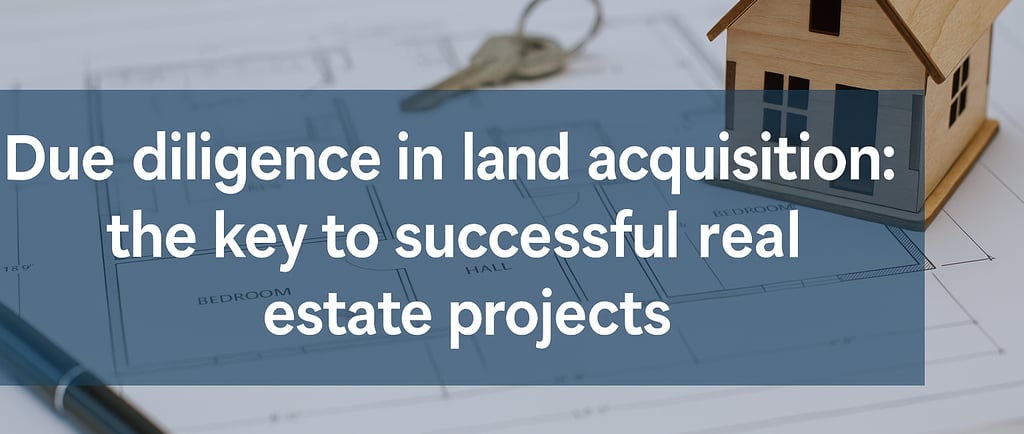Due diligence in land acquisition: the key to successful real estate projects
Learn why due diligence is the foundation of every successful real estate project. From zoning and utilities to environmental reviews and legal checks, discover the key steps investors and developers must take before purchasing land for single-family developments.
8/25/20252 min read


Due diligence in land acquisition: the key to successful real estate projects
Behind every successful residential development lies one critical step: choosing the right lot. While the excitement of a new project often drives investors to act quickly, skipping proper due diligence when purchasing land can turn into costly mistakes, legal challenges, or even complete project failure.
At Double P Real Estate, we’ve seen how a solid due diligence process can make the difference between a profitable investment and a financial setback. Here’s what every developer and investor should keep in mind before closing a deal.
1. Zoning and land use regulations
Before buying, it’s essential to confirm what the land is actually zoned for. A lot may seem perfect, but if zoning doesn’t allow the type of residential development you’re planning, you’ll face delays, rezoning costs, or even project cancellation.
2. Access to utilities and infrastructure
Does the lot have immediate access to water, sewer, and electricity? In many cases, the extension of these services can add tens of thousands of dollars to a project. Early verification avoids surprises and helps plan more realistic budgets.
3. Environmental and soil conditions
Factors like flood zones, wetlands, or soil composition can limit the buildable area or require expensive engineering solutions. A proper environmental review ensures the lot is not only buildable but also compliant with local and federal requirements.
4. Market and neighborhood analysis
A great lot in the wrong location is not a great investment. Studying market trends, demographics, and comparable projects helps confirm demand and profitability. This step also helps identify the right product type (entry-level homes, mid-range, or luxury single-family).
5. Legal and title checks
Unresolved liens, unclear ownership, or deed restrictions can derail a project long after acquisition. Partnering with legal experts to conduct thorough title searches and lien reviews is a must before signing any contract.
Final thoughts
Due diligence isn’t just a formality — it’s the foundation of a successful real estate project. By carefully analyzing zoning, infrastructure, environmental factors, market potential, and legal standing, investors protect their capital and secure long-term profitability.
At Double P Real Estate, we help developers and investors carry out this process with precision, ensuring every project starts on solid ground.
👉 Thinking of acquiring a lot for your next single-family development?
Contact us to evaluate it together and reduce your risk from day one.


